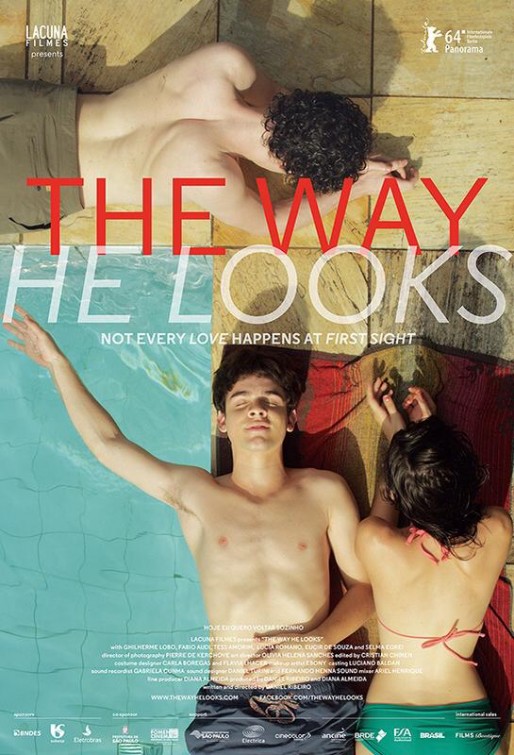
This short review appeared on The Upcoming website here as part of their coverage of the BFI London Film Festival.
The Way He Looks is
writer-director Daniel Ribeiro’s feature debut. Adapted from his own 2010 short
film Eu Não Quero Volta Sozinho, the film is Brazil’s official entry for
the 2015 Academy Awards.
Leonardo (Ghilherme Lobo) has
been blind since birth. His best friend, Giovanna (Tess Amorim) helps him out
and seems to have developed a crush on him, one that he is unable or unwilling
to notice. When a new classmate, Gabriel (Fabio Audi), arrives and almost
immediately strikes up a friendship with Leonardo, Giovanna begins to feel left
out.
The Way He Looks is a film
about disability, but it manages to transcend that often patronising and
mawkish subgenre. Ribeiro and Lobo make sure that Leonardo is a
three-dimensional, even somewhat complex character, not simply a figure of pity
or a medium for a message about disability. The film works best simply as a
film about the difficulties of romance in high school, a coming-of-age film
with villainous bullies, romantic misunderstandings and a soundtrack that makes
good use of Belle and Sebastian’s “There’s Too Much Love.” The blindness is
present but it rarely takes centre stage and it is easy to imagine that the
film would not have been significantly different without it.
That said, Ribeiro shows great
versatility in conveying a burgeoning romance without the use of visuals.
Leonardo’s growing affection for Gabriel is presented through sounds and
smells, particularly in one touching scene in which Leonardo finds Gabriel’s
jumper. Ribeiro is ably assisted here by great performances from his three
young leads, all of whom offer complex performances rather than the types usually
seen in high school dramas. Eucir de Souza and Lúcia Romano are both very good
as Leonardo’s parents, trying to reconcile Leonardo’s maturation with their
continuing worries about him.
The film is not flawless, but it works as a likable and
funny indie film about growing up and discovering one’s sexuality. It is an
honest and largely non-judgemental depiction of young love – although Isabela
Guasco’s Karina, is too quickly written off – and a sensitive portrait of a
blind person’s attempts to fit in.
No comments:
Post a Comment